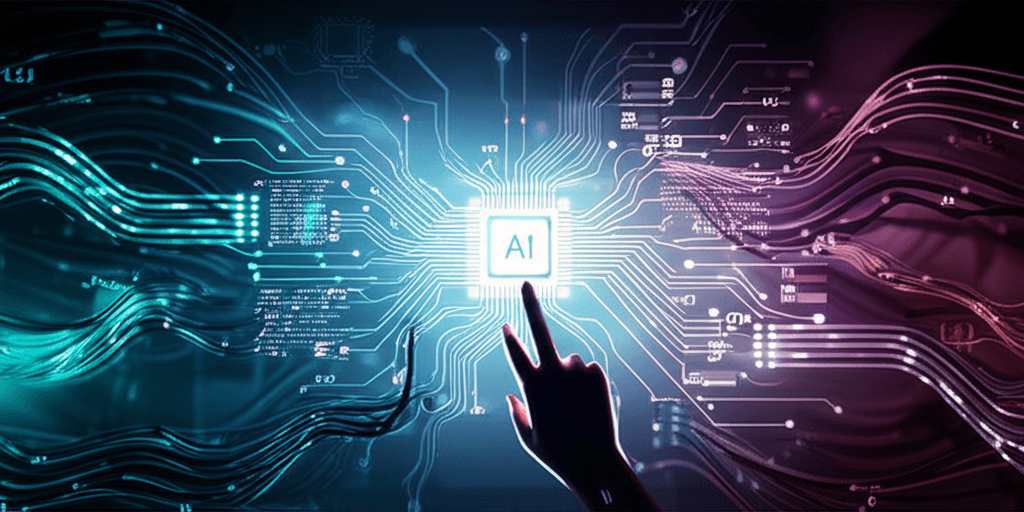Google admits losing cyber war, launches AI arms race against new AI threats.
Cybersecurity is losing. Google launches an AI arms race, deploying autonomous defenses against increasingly sophisticated, AI-powered threats.
August 28, 2025

In a startling admission that underscored the shifting dynamics of digital defense, a top Google executive declared that after five decades of evolution, the cybersecurity industry is still fundamentally losing the war against attackers. Speaking to technology journalists in Singapore, Mark Johnston, Google Cloud's Director for the CISO's office in Asia Pacific, painted a stark picture of the current landscape, where a significant majority of organizations remain oblivious to their own security breaches until notified by external parties.[1] This confession sets the stage for a new, escalating conflict in cyberspace: an artificial intelligence arms race.[2] As malicious actors weaponize generative AI to create more sophisticated and scalable attacks, the tech giants entrusted with safeguarding the digital frontier, like Google Cloud, are racing to build a new generation of AI-powered defenses to counter the unprecedented threat.
The nature of cyberattacks is undergoing a profound transformation, driven by the same generative AI technologies celebrated for their innovation.[3] Malicious actors are now leveraging AI to supercharge their efforts, moving beyond simple automation to create intelligent, adaptive, and highly deceptive threats.[3][4] One of the most immediate impacts has been on social engineering, with AI generating thousands of unique and contextually aware phishing emails that can easily bypass conventional security filters.[3] These are not the typo-laden messages of the past; modern AI can scour social media and other sources to craft highly personalized attacks that mimic the writing style of trusted colleagues or reference recent personal events, making them incredibly difficult for humans to detect.[5] Furthermore, AI is being used to create polymorphic malware that constantly alters its code to evade signature-based detection tools, and deepfake technology is enabling CEO scams and business email compromise with a terrifying level of realism.[6][7] This new breed of AI-driven threat can learn from its environment, adapt its behavior to remain hidden, and execute attacks without direct human intervention, fundamentally changing the speed and scale of cyber warfare.[8][3]
In response to this escalating threat, Google Cloud is positioning itself at the forefront of the defensive counter-offensive, building an arsenal of security tools deeply integrated with artificial intelligence. The strategy is to fight AI with AI, leveraging the company's vast data sets and advanced models to automate threat detection and response at a scale and speed previously unattainable.[8] A central pillar of this strategy is the Google Cloud Security AI Workbench, an extensible platform powered by a specialized large language model called Sec-PaLM, which is fine-tuned for security use cases.[9][10][11] This platform underpins a suite of new tools designed to empower security professionals. For instance, Duet AI for Chronicle and Security Command Center allows analysts to use natural language queries to investigate threats, drastically reducing manual toil and the time it takes to hunt for malicious activity.[12] A key differentiator for Google is the deep integration of threat intelligence from Mandiant, the cybersecurity firm it acquired.[13][14] This fusion provides real-time, frontline intelligence on vulnerabilities and threat actor behavior, which is fed directly into Google's AI models to proactively identify and neutralize threats, often before a customer is even aware of them.[15][12][16] Tools like Model Armor are specifically designed to protect AI systems themselves from attacks like prompt injection and data leakage, securing the very technology that underpins this new era of defense.[17][18][19]
This clash of machine-versus-machine capabilities marks a pivotal moment for the entire cybersecurity industry, creating a continuous cycle of innovation and counter-innovation between attackers and defenders.[4][2] The era of static, reactive security postures is rapidly becoming obsolete.[8] As both sides refine their AI-powered capabilities, security is transforming into a high-stakes, real-time battlefield where automated systems engage one another at machine speed.[20][8] This AI arms race is forcing a fundamental rethink of security operations, moving the focus from investigating alerts after the fact to predictive threat hunting and autonomous response.[3] The goal of what Google calls an "agentic security operations center" is to use AI agents to handle routine tasks like alert triage and investigation, freeing up human analysts to focus on the most complex and strategic threats.[17][21] This shift is not about replacing human expertise but augmenting it, creating a partnership where AI acts as a force multiplier, handling the massive scale of data analysis and response required to defend against AI-powered attacks.[8][3]
Ultimately, the advent of AI-driven cyber warfare presents both an existential threat and a profound opportunity. While attackers have gained powerful new weapons, defenders now have the tools to move from a perpetually defensive stance to a more proactive and predictive one. The success of platforms like Google Cloud will depend on their ability to not only innovate faster than their adversaries but also to democratize this advanced capability for organizations of all sizes, many of which are struggling with a persistent talent gap in cybersecurity.[11] The admission of past failures serves as a crucial acknowledgment that previous methods are no longer sufficient. The future of cybersecurity will be defined not by building higher walls, but by deploying smarter, autonomous systems capable of anticipating, identifying, and neutralizing threats in a landscape where the battlefield is constantly being reshaped by artificial intelligence.
Sources
[3]
[7]
[10]
[11]
[12]
[15]
[17]
[18]
[19]
[20]